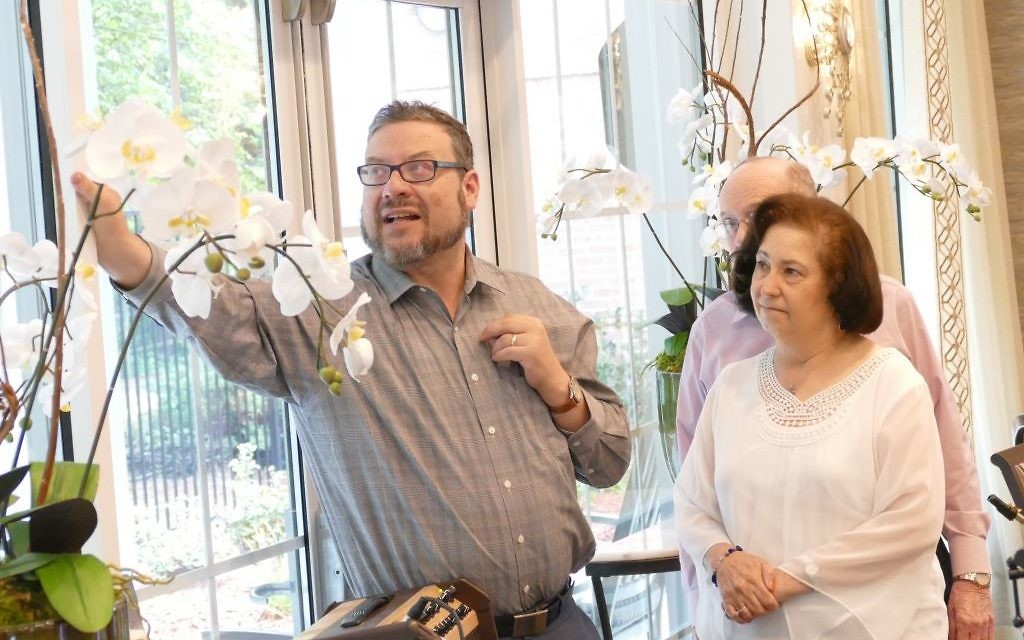Gesher L’Torah: The Book Never Closes on Life
Whether G-d writes or we write or the writing is simply the footprints left in the shifting sands of our lives, a new page is always waiting.

This year I accepted an invitation to speak as part of the “Know Your Neighbors” interfaith series at Johns Creek United Methodist Church. When the presentation was opened up for discussion, questions ranged from the most basic (“Why do you wear a head covering?”) to the more complex (“Do Jews believe in a messiah?”).
But by far the most memorable moment was when a woman in the back row asked me about a friend of hers who had been born into a Jewish family but no longer felt like he belonged. He had, she related to me, been told that because of decisions he had made in his life, he had been inscribed in the Book of Death. “Is there really a Book of Death?” she asked.
My heart sinks again just retelling the story. And while my answer to this woman was briefer, I felt it was worth expanding here on what I told her.
Get The AJT Newsletter by email and never miss our top stories Free Sign Up
The heart of her question is tied up in a central image of the High Holiday liturgy: We pray throughout the season that we be inscribed and sealed b’sefer chayyim (in the Book of Life).
The Book of Life has its source in the Talmud in two main places. “Rav Kruspedai taught that on Rosh Hashanah three books are opened, one book for the completely righteous, one for the completely wicked and a third for those who are in between.” Elsewhere these open books are referred to as the Books of the Living and the Dead.
So according to the most literal reading of these traditions, the new year becomes a time in which the Holy One sits to judge each of our fates, and the results are recorded according to our worthiness.
Rav Kruspedai’s description of this divine accounting influences many prayers and customs of the season. Even one of the greetings for Rosh Hashanah is “May you be written in the Book of Life,” and the corresponding words for Yom Kippur are g’mar chatima tova: May the sealing (of the inscription) be finished well.
Even without a literal understanding of these books, they play a large role in the way we think about what is at stake each year. So is there a Book of Death for this person’s friend to find himself recorded in?
And this is where the words of the prayers, even in their most traditional form, tip the scales.
The words of the prayers, in all their description of the awesome power of G-d and the humble, fragile nature of human beings, never waver from the belief that the Book of Life is always open. Because while the Talmud talks of life and death, the mahzor, the prayer book for the High Holidays, mentions only the Book of Life.
Still, even focusing on the one book can leave the sense that Rosh Hashanah and Yom Kippur are an either-or proposition: Do what it takes to get written and sealed for life or be left to a different fate. And certainly this understanding is only made more severe by the imagery of the Unetaneh Tokef with its citing of the year’s possible terrors, such as fire, earthquake and flood.
The literal implications of this liturgy can make it as challenging as its majestic melody makes it moving for so many, and there are many beautiful commentaries to help place it in a context of responding to, rather than ordaining, life’s vicissitudes.
Even with the theology of Unetaneh Tokef and its focus on the writing and the sealing of the judgment, we do not find anyone written out of the story. We do not see the kind of statement of ostracism that made such an impact in the life of this friend of the person who asked the question. Whether G-d writes or we write or the writing is simply the footprints left in the shifting sands of our lives, a new page is always waiting; the book is always open.
Even as we find ourselves with more contemporary readings of the Book of Life, a story from the Hasidic tradition shows the power of taking it more literally.
Once when the High Holidays fell on Shabbat, Rabbi Levi Yitzchak of Berditchev, known as the great defender of the people Israel, addressed G-d before the service. “Master of the Universe,” he called out, “today is Shabbat, and writing is prohibited. Of course, to save a life, anything is permitted. So, by your own rules, you may not write anyone in any book but the Book of Life.”
Whether as a way of expressing the openness to whatever life brings or in the spirit of the Berditchever Rebbe’s assertion, may each of us find ourselves in the pages of life’s book, inscribed for well-being, vitality and joyful blessing.
Rabbi Michael Bernstein is the spiritual leader of Congregation Gesher L’Torah (www.gltorah.org).




comments